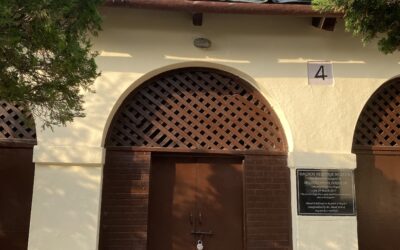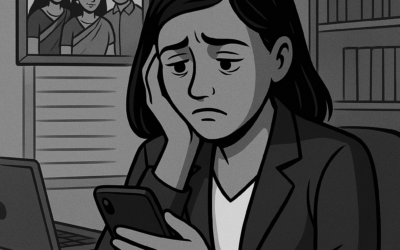A Malayalee growing up in Gujarat has certain perks. Locals do not understand your name, culture, or slang and you can get out of awkward situations – mostly by lying yes. Then the unthinkable (for me definitely) happened, and I shifted back to the place that is supposed to be my ‘real home’ – Kerala.
The surprise though is my fault. I assumed I would fit in better in Kerala because I never did in Gujarat. I was acutely made aware of being the dark skinned girl with a funny surname in a school of 500. Silly? Most definitely! But tell that to a 13-year-old. I also had the option of choosing to be quiet between reservation jokes or landlords trying to understand your caste. That veil though ceases to exist now that I have returned to my so-called roots. One of the first things after hello that my current landlord said was “Don’t eat outside here, it’s all run by Ezhavas and Muslims. So dirty.”
There is a weird conundrum in Kerala. The image of a socially and politically developed state has its holes as being quite conservative, Malayalee women will particularly agree. Does it mean I miss home? Definitely not! So I went on to Google (like I always do) and turns out homesickness is not as much as missing your home and family but more of a clear adjustment issue. I was missing a routine – be it work, chores, or people; the normal had changed.
For someone who has taken social relationships for granted, this perceived absence of support played on my mind. Why am I circling around for 300 words to understand this effect on migrant workers who unlike anyone reading this is forced to migrate in acute distress? As narrated by Ashraf* at 24, the same age as me, he has already been working in Kerala for 7 years.
“I work 6 days a week then go back to Bengal for 2-3 months, come back here again, and continue to work.” Does he like Kerala that much? “Not at all but what option do I have? I get more than double wages here. Poor men like me have no choice anyway,” he laughs.
Ashraf has to take 2 buses for a 1 hour route to his company but he stays in Bengali Market. “All my friends are here even most people from my village, why will I stay elsewhere when my family is here?” This is not novel to Ashraf* for men like him who migrate leaving families behind their community becomes crucial in an alien place. You will also find them living with the same neighbours that live near their family in the native state.
For education-career migration by urban people, their social relationships are not characterized by this need for a similar community. I barely had Malayalee friends growing up because learning the language and forcing to fit into a culture meant I could not make friends with locals. But for migrant workers like Ashraf that is not easily possible, particularly in Kerala where the language and culture is so starkly different.
“They do the ‘lowest’ jobs, are responsible for growing crime and have taken away jobs from Malayalees” – is a sentiment that echoes from amongst common folks to the police here.
Bhai area, Bengali ghar, bhai shops are thus named to not only provide a clear demarcation but is also prejudice masked as a concern to tell people to not visit such areas. In the 6 months I roamed about though it was more local men who made me uncomfortable, ‘accidently’ got my number or texted and nobody generalized that as a native issue. The perceived unsafe environment or blame for crimes is linear and biased, typical of any majority who wants to continue enjoying the power, definite reference to what is happening to religious minorities in the country too.
This aggression stems from fear of outsiders as elucidated in an interesting study in U.S [1]where researchers asked participants to estimate the linear distance from New York to Mexico. It was found that participants who expressed animosity to Mexican immigrants rated Mexico quite closer to New York as opposed to people who felt less threatened.
Our brains exaggerate the perceived threat! Anecdotes or stories perpetuating the fear stick on more than actual statistics – I see this on field every day. One story involving migrant anywhere in Kerala will be extremely newsworthy but not an overall picture or view. During 2015-2019 Kochi and its 26 police stations registered a total of 2,01,889 cases out of which migrants were accused in 1029 of them. This is even including institutional bias in our justice systems- which is a complete different conversation. What happens when we choose to otherise communities and not be open to listen, read up and educate ourselves- goes much beyond staying ignorant but actually and actively harms people. Personal is always political!
In terms of migrants particularly, there should be collective acceptance to migration as a natural phenomenon – prevalent since the start of civilization. This will move the conversation forward towards the inclusion of communities as different as Rosgulla and Pazham Pori.
[1] See Your Friends Close and Your Enemies Closer: Social Identity and Identity Threat Shape the Representation of Physical Distance




0 Comments